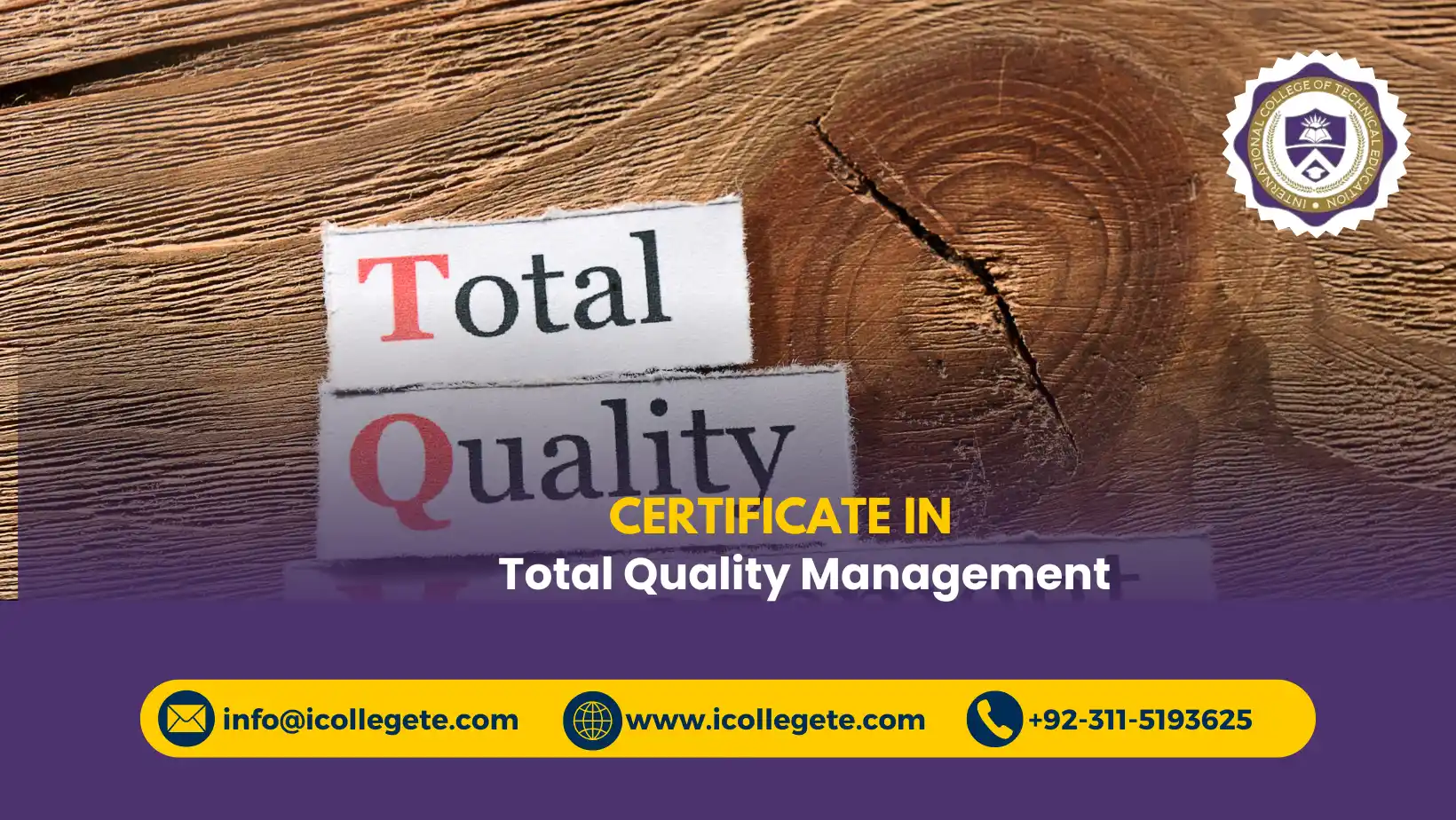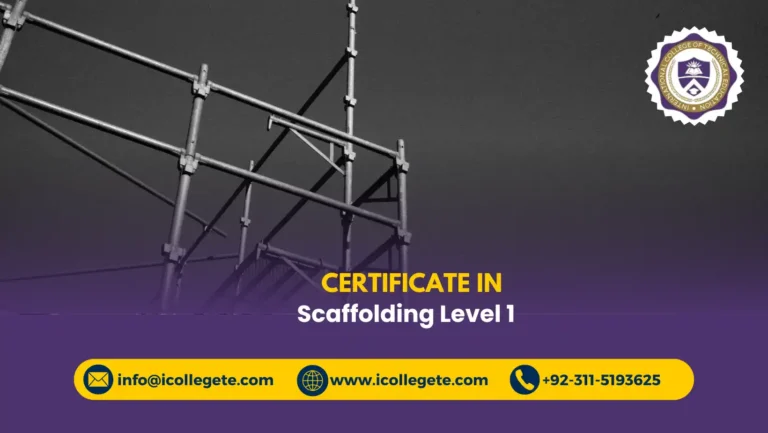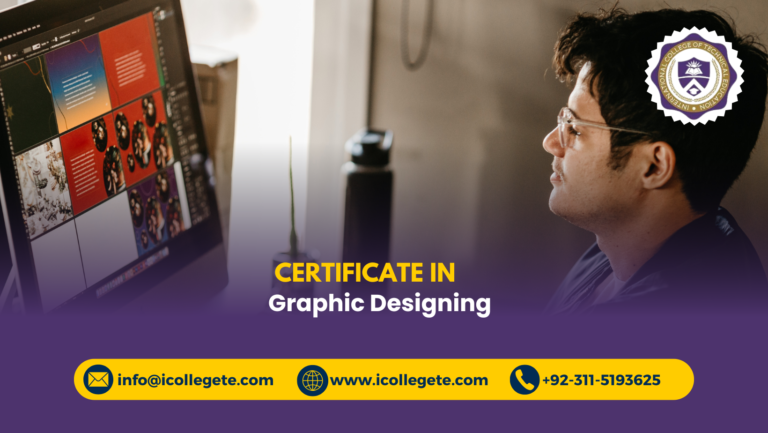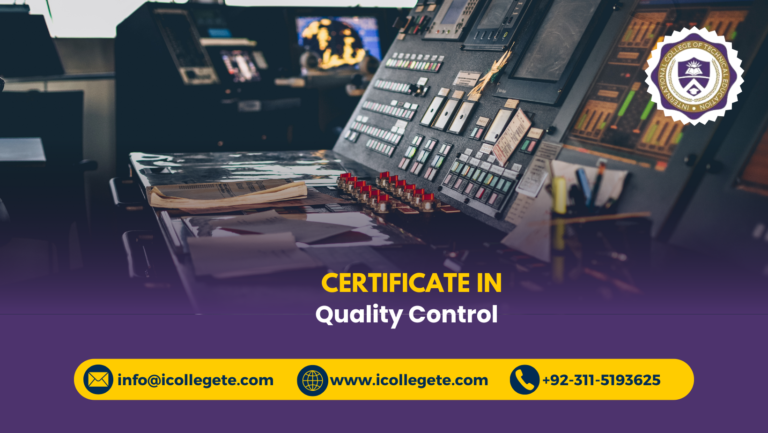The Total Quality management course in Jhelum is designed to provide learners with the knowledge and skills necessary to implement and maintain effective quality management practices within organizations. In today’s competitive business environment, ensuring high-quality products and services is essential for customer satisfaction, operational efficiency, and long-term organizational success. Total Quality management course in Jhelum offers a comprehensive understanding of total quality management principles, tools, and techniques, enabling participants to drive continuous improvement and achieve excellence in processes and outcomes.
Participants will gain practical skills in quality planning, process improvement, performance measurement, and customer-focused strategies. The Total Quality management course in Jhelum emphasizes real-world applications of quality management systems, helping learners understand how to reduce errors, enhance efficiency, and foster a culture of continuous improvement across all levels of an organization. Through case studies, practical exercises, and interactive sessions, learners develop critical thinking, problem-solving, and decision-making skills applicable in various industries.
Total Quality management course in Jhelum also explores modern quality management standards, best practices, and methodologies, including Six Sigma, Kaizen, and ISO-based approaches. By understanding these strategies, participants will be equipped to monitor, evaluate, and enhance organizational processes while aligning with industry standards and customer expectations.
Whether you are a professional seeking career advancement, a manager aiming to improve operational efficiency, or a newcomer aspiring to enter quality management roles, the Total Quality management course in Jhelum offers a structured learning path. By the end of the Total Quality management course in Jhelum, learners will be capable of implementing effective quality management strategies, ensuring product and service excellence, and contributing to organizational growth and competitiveness.
Course Overview
- Understanding the fundamentals of total quality management
- Learning quality management principles, practices, and standards
- Developing skills in process improvement and continuous improvement
- Mastering performance measurement and quality metrics
- Implementing customer-focused strategies and practices
- Applying quality planning and risk management techniques
- Understanding Six Sigma, Kaizen, and ISO-based approaches
- Enhancing problem-solving and decision-making capabilities
Course Study Units
- Introduction to Total Quality Management
- Principles and Practices of Quality Management
- Process Improvement and Continuous Improvement Techniques
- Quality Planning and Risk Management
- Performance Measurement and Quality Metrics
- Customer-Focused Strategies and Quality Assurance
- Six Sigma, Kaizen, and Lean Management
- ISO Standards and Quality Compliance
- Quality Auditing and Reporting
- Implementation of Total Quality Management in Organizations
Course Learning Outcomes
- Understand key concepts and principles of total quality management
- Apply process improvement and continuous improvement techniques
- Develop and implement quality planning strategies
- Monitor and measure performance using quality metrics
- Implement customer-focused quality initiatives
- Utilize Six Sigma, Kaizen, and lean management tools
- Ensure compliance with ISO standards and quality requirements
- Conduct quality audits and generate reports effectively
- Improve problem-solving and decision-making skills
- Enhance operational efficiency and reduce errors
- Promote a culture of continuous improvement within organizations
- Develop strategies to achieve organizational excellence
- Analyze processes to identify areas for quality improvement
- Increase professional competency in quality management practices
Entry Requirements for this course
- Minimum education of high school or equivalent
- Basic understanding of business operations or management principles
- Interest in quality management and process improvement
- Good communication, analytical, and organizational skills
- Ability to participate in practical exercises and case studies
- No prior professional experience required but beneficial
- Motivation to develop a career in quality management or related fields
- Willingness to learn modern quality management tools and techniques
- Attention to detail and commitment to maintaining high standards
- Ability to complete all study units and assessments
- Understanding of basic operational processes is advantageous
- Ability to analyze data and improve process efficiency
- Open to learning industry best practices and quality standards
- Capacity to implement knowledge in practical scenarios
Course Benefits
- Comprehensive understanding of total quality management principles
- Skills to implement continuous improvement and process optimization
- Ability to plan, monitor, and measure quality effectively
- Knowledge of Six Sigma, Kaizen, and lean management practices
- Understanding of ISO standards and compliance requirements
- Improved problem-solving and decision-making skills
- Practical application through case studies and exercises
- Enhanced operational efficiency and organizational performance
- Ability to reduce errors and enhance product and service quality
- Career advancement opportunities in quality management roles
- Preparation for supervisory and managerial positions
- Increased employability in diverse industries
- Ability to foster a culture of quality and excellence
- Development of customer-focused and results-oriented strategies
Why someone choose this course
- To gain expertise in total quality management principles and practices
- To improve operational efficiency and reduce errors in processes
- To develop skills in process improvement and continuous improvement
- To enhance career prospects in quality management and supervision
- To learn Six Sigma, Kaizen, and lean management techniques
- To implement ISO standards and ensure compliance with quality requirements
- To improve customer satisfaction through quality initiatives
- To gain practical knowledge applicable to real-world organizational challenges
- To develop problem-solving, analytical, and decision-making skills
- To foster a culture of quality and continuous improvement
- To prepare for leadership and managerial roles in quality management
- To gain professional recognition and credibility in the field
- To stay updated with modern quality management practices
- To contribute to organizational excellence and competitiveness
Who can enroll in this course
The Total Quality management course in Jhelum is ideal for recent graduates who aspire to pursue a career in quality management and process improvement. Total Quality management course in Jhelum is also suitable for professionals currently working in operations, administration, or production roles who want to enhance their knowledge and skills in quality practices. Individuals seeking practical expertise in implementing continuous improvement and quality standards will benefit significantly.
Managers, team leaders, and supervisors who aim to improve operational efficiency, reduce errors, and ensure high-quality output in their departments can enroll in Total Quality management course in Jhelum. Business owners and entrepreneurs who wish to implement quality management strategies in their organizations will also find Total Quality management course in Jhelum valuable.
Those planning to work in manufacturing, service, healthcare, construction, or corporate sectors can apply the knowledge gained to achieve organizational excellence and maintain high standards. The Total Quality management course in Jhelum provides practical insights that can be immediately applied to improve processes and enhance overall performance.
Additionally, the program caters to learners from various backgrounds, offering interactive learning, practical exercises, and case studies. By completing Total Quality management course in Jhelum, participants will gain confidence and competence in managing quality processes, implementing best practices, and contributing to the success and competitiveness of their organizations.
Future Progression for this course
- Eligibility for advanced quality management and operational excellence programs
- Opportunities for supervisory, managerial, or quality leadership roles
- Career growth in manufacturing, service, healthcare, and corporate sectors
- Eligibility for professional certifications in quality management
- Development of skills for continuous improvement and process optimization
- Opportunities to work in organizations implementing ISO standards and quality systems
- Enhanced operational efficiency and compliance capabilities
- Preparation for roles in quality auditing, performance measurement, and process improvement
- Ability to specialize in Six Sigma, Kaizen, or lean management
- Career progression in quality management, operational management, or consultancy
- Strengthened problem-solving and analytical skills
- Ability to implement quality initiatives organization-wide
- Networking and professional development opportunities in quality management
- Contribution to organizational growth, customer satisfaction, and operational excellence






